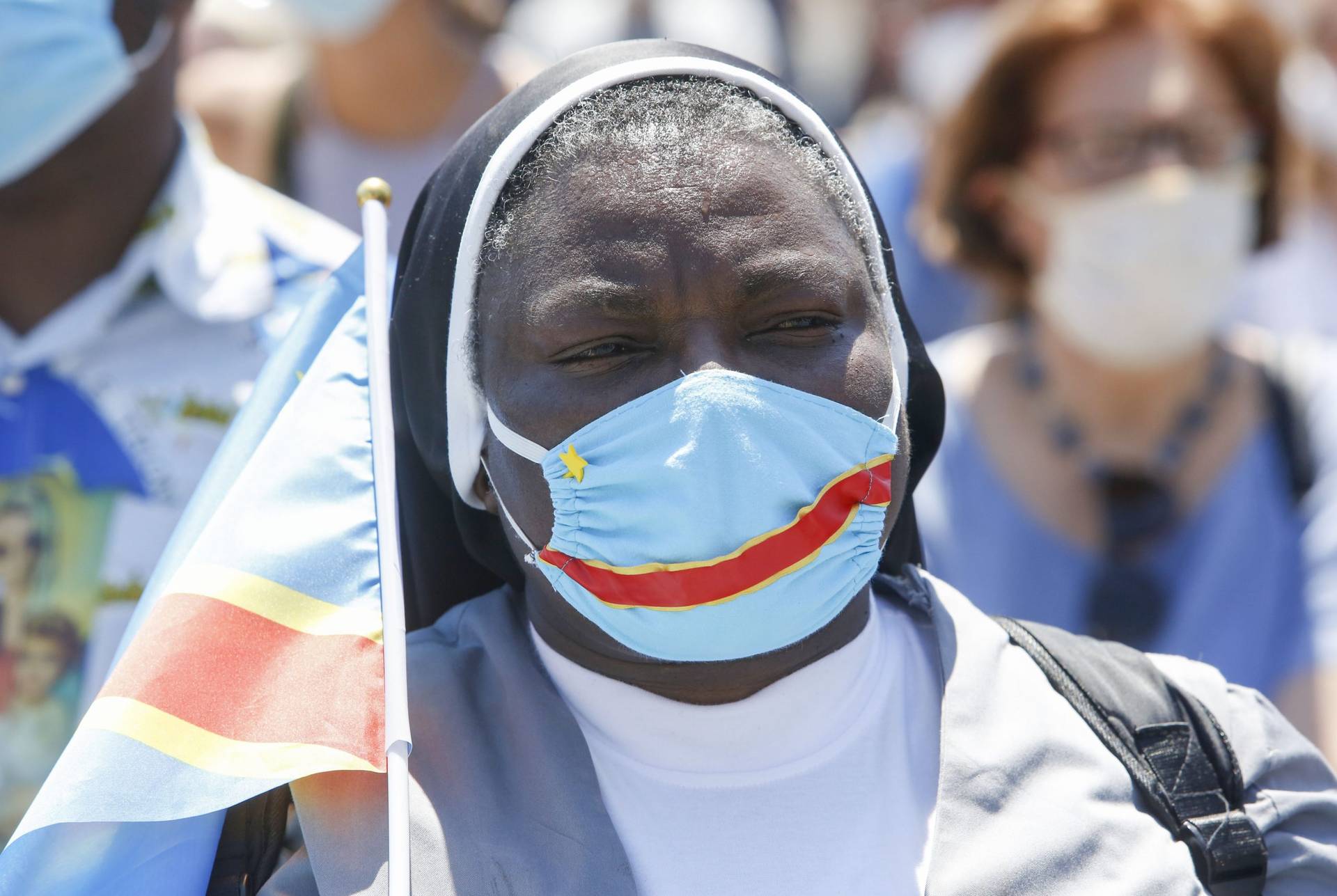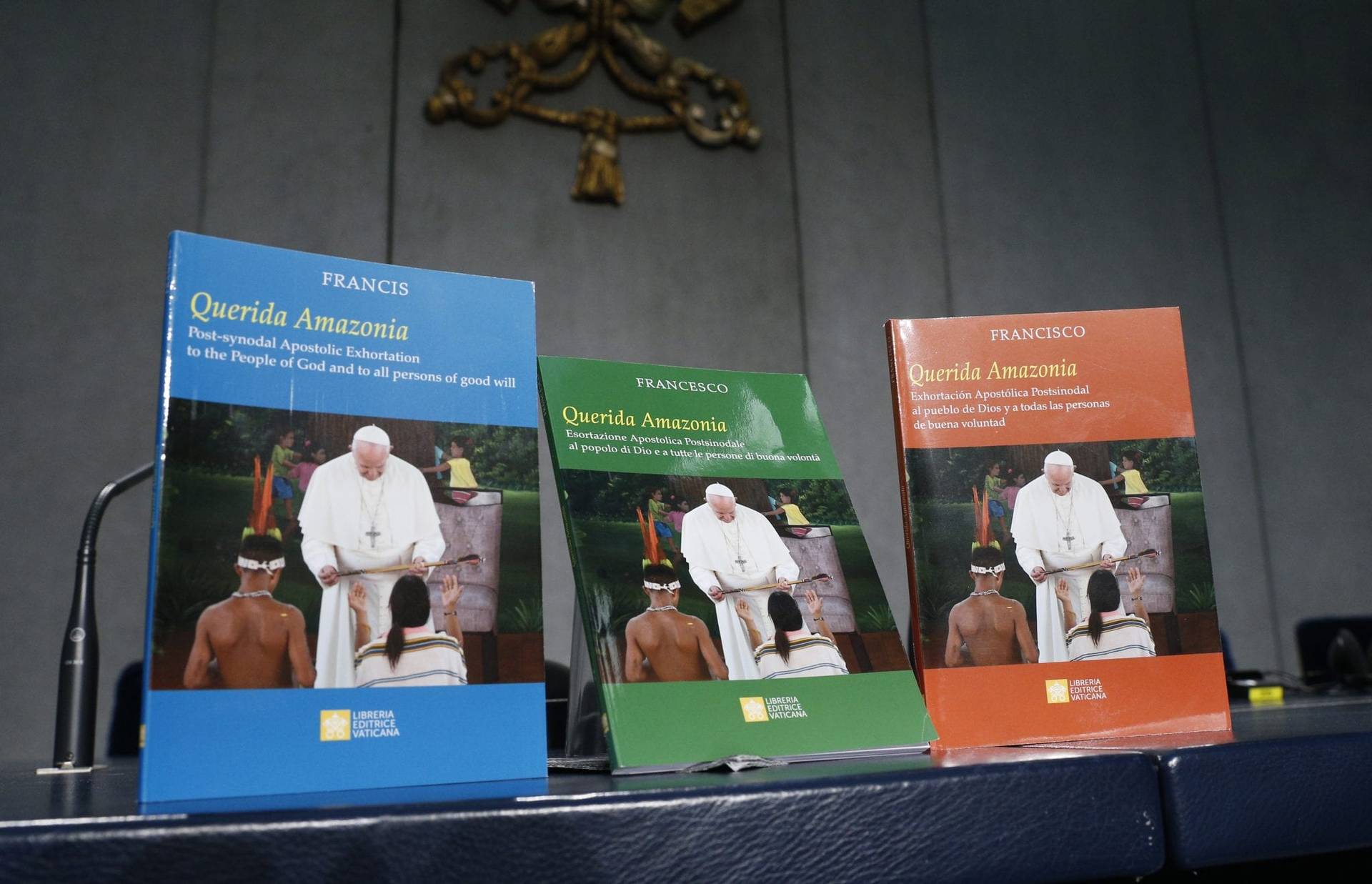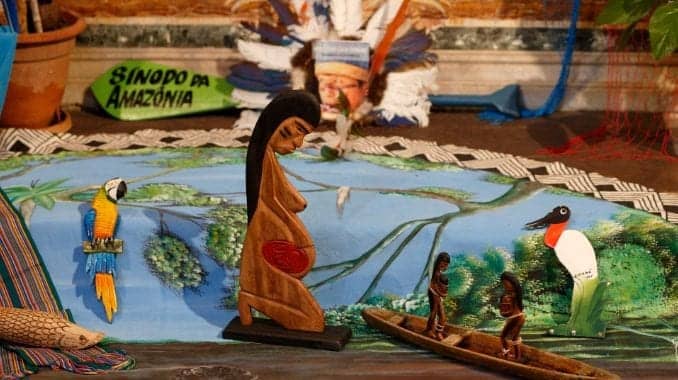ROME — Catholics should admit their crimes against nature in confession, according to one prelate at the Vatican’s ongoing summit for the Amazon region.
“The ecological situation today is a motive for division, but people cannot but take into consideration the importance the environment has for us,” said Archbishop Pedro Brito Guimarães, of Palmas, Brazil, on Friday. “Ecological sins. It’s a new word for us, also for the Church, but people don’t confess the sins we commit against nature.”
Guimarães’s words came during the daily press conference for the Oct. 6-27 Synod of Bishops on the Amazon.
“Everything is interconnected, it’s a chain. For this reason, this synod is important,” the archbishop said. “The future of humanity also depends on the decisions of this synod.”
The press conference also featured Cardinal Carlos Aguiar Retes, Archbishop of Mexico; Bishop Joaquín Pertíñez Fernández, of Rio Branco, Brazil; and Sister Birgit Weiler, who works in Peru.
The call for an integral ecology and the protection of the environment were the major themes discussed by the four synod participants.
Weiler accused international corporations of exploiting the resources of the Amazon region without upholding the rules they would be forced to follow in their countries of origin.
The nun said that many indigenous peoples in the Amazon count on the Church to help them file civil complaints against foreign companies, and that some progress has been made with companies coming from the United States and Canada, but it’s “harder to fight for human rights” with Chinese companies.
“This requires a joint effort, including also the shareholders, who need to see if their consciences are fine with these [human rights violations in the Amazon],” she said, urging stockholders to demand companies work ethically, respecting the people in the region and the environment.
If not, Weiler said, it would imply “the life of a person in Europe, the United States and Canada is worth more than a human life in Latin America, the life of a person from the Amazon or a farmer.”
“We all have the same right as inhabitants of our common home,” she said.
Weiler also said that this moment in history calls the Church to “come out of itself, live as a prophetic voice, and defend this space that is our planet.”
According to Aguiar Retes, an “integral ecology” is indispensable, because continuing to live what Pope Francis has denounced as a “throwaway culture” of accumulating wealth for its own sake, is “senseless” and will lead “to an apocalyptic catastrophe that will end our planet.”
One of the questions posed by journalists had to do with the growing presence of Pentecostal churches in the region.
RELATED: Synod member, weary of married priest debate, rues getting stuck in ’70s
Aguiar Retes said that the proclamation of the Gospel, an element of evangelization some argue is often forgotten in the Amazon, is being discussed during the synod’s small group discussions.
“We have delegates from fraternal churches, and in my group, the delegate himself told us that we need to take into consideration that, first and foremost, people want the Word of God,” he said. “And on this, Pope Francis has given us a very strong testimony in [his apostolic exhortation] Evangelii Gaudium and [the encyclical] Laudato Si.”
“[Francis] very much focuses on the urgency of proclaiming the Word of God so that people can deepen their relationship with God and then get to know the rest as well,” Aguiar Retes said.
Guimarães said that there are many reasons that cause people to change churches, and that some might change denominations five or six times in their lives: “It’s enough for some not to be in agreement with the opinion of the pastor to go found another church,” he said.
One of the reasons for this church swapping, according to the arhbishop, is the question of being welcoming and the prosperity theology espoused by some Evangelical churches, since it promises happiness or physical wellbeing in regions where access to healthcare is almost impossible.
Spanish-born Pertíñez said that the historical shortage of priests in the Amazon has also contributed to people leaving the Catholic Church, arguing that there are “existential and religious voids that we don’t occupy. Our peoples are very religious, and when anyone comes speaking about God, promising God, people believe them.”
Weiler spoke about the pope’s call to look deeply into the causes of this situation, while at the same time looking for new paths of evangelization, including being attentive at a pastoral, social, cultural and ecological level.
“We have to go from a visiting ministry to a ministry of presence,” she said. “For the indigenous peoples, it’s very important that we are present, that we live with them, that we are with them. It brings up the challenge of a deeper inculturation of the faith.”
Follow Inés San Martín on Twitter: @inesanma
Crux is dedicated to smart, wired and independent reporting on the Vatican and worldwide Catholic Church. That kind of reporting doesn’t come cheap, and we need your support. You can help Crux by giving a small amount monthly, or with a onetime gift. Please remember, Crux is a for-profit organization, so contributions are not tax-deductible.
















